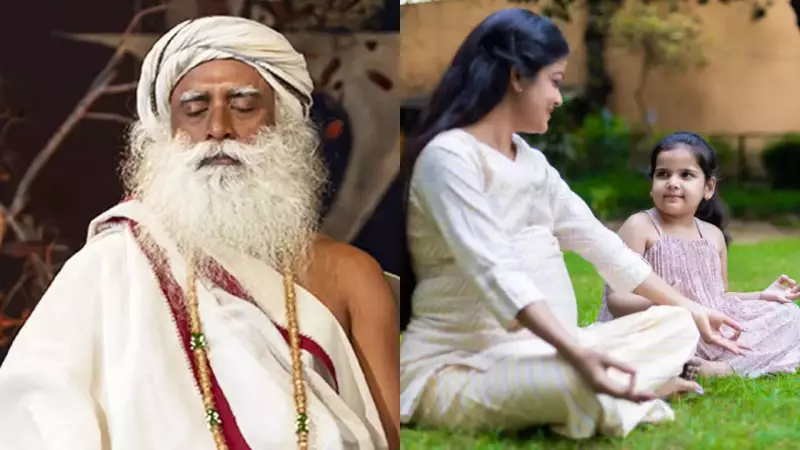
In a world where parenting often revolves around discipline and authority, spiritual leader Sadhguru Jaggi Vasudev offers a refreshingly different perspective. His daughter Radhe Jaggi recently revealed how her father's approach to parenting focused on consciousness rather than control, creating an environment of understanding and emotional awareness.
The Power of Two Simple Questions
Radhe Jaggi describes her childhood as joyful and remarkably free from strict rules, despite admitting she was a very naughty child. What made this possible was her father's unique response to her mistakes. Instead of scolding or threatening punishment, Sadhguru would calmly ask her two fundamental questions: "Kya hua?" (What happened?) and "Kyu kiya?" (Why did you do it?)
These questions, while seemingly simple, served a profound purpose. They encouraged Radhe to reflect on her behavior and understand her own motivations. This practice replaced fear and punishment with self-awareness, helping her take responsibility for her actions naturally. Over time, she learned to pause and make thoughtful choices not because she feared consequences, but because she genuinely understood them.
Why Authoritarian Parenting Fails Today
Sadhguru's philosophy directly challenges the traditional belief that strictness equals good parenting. He warns that when parents act like dictators, children may obey out of fear but disconnect emotionally. This emotional disconnection can lead to long-term issues including rebellion, anxiety, and seeking validation from external sources like peers or social media.
The spiritual leader also highlights another common parenting mistake: projecting unfulfilled dreams onto children. Many parents unconsciously force their children into careers or expectations that don't align with the child's passions. "Trying to make your child what you failed to become," Sadhguru emphasizes, "is one of the biggest mistakes a parent can make."
Parenting in the Digital Age Requires New Approaches
Today's children are growing up in a dramatically different environment compared to previous generations. With constant exposure to technology, social media, and global influences, old-fashioned strict parenting methods have become increasingly ineffective. Sadhguru believes that in this new landscape, connection, not control, is what earns parents true influence.
He emphasizes that the best foundation parents can provide is a home filled with love, joy, and emotional stability. Children raised in environments free from shouting, jealousy, and fear naturally develop confidence and emotional intelligence that serves them throughout life.
Practical Steps for Conscious Parenting
Sadhguru's approach translates into several practical strategies that parents can implement:
Encourage dialogue over commands: Replace orders with conversations that help children reflect and understand.
Replace criticism with curiosity: Instead of judging behavior, explore the reasons behind it.
Be a guide rather than a dictator: Use logic and empathy to lead children toward wise decisions.
Teach through experience, not fear: Allow mistakes to become valuable learning opportunities.
Create emotional safety: Ensure children know they can approach you without fear of being scolded.
Perhaps the most powerful aspect of Sadhguru's parenting philosophy is the reminder that children are not possessions but independent beings on their own journeys. Parents should act as supportive guides rather than owners trying to shape their children according to personal expectations.
Radhe Jaggi's upbringing demonstrates that children thrive when they feel safe, understood, and trusted. In an era where parenting advice often swings between extreme rigidity and complete permissiveness, Sadhguru's balanced approach offers a middle path that helps children think rather than just obey, and grow with love instead of fear.





